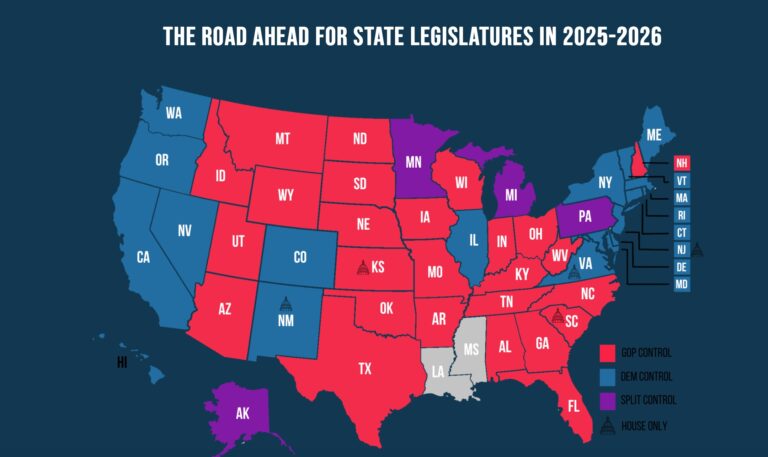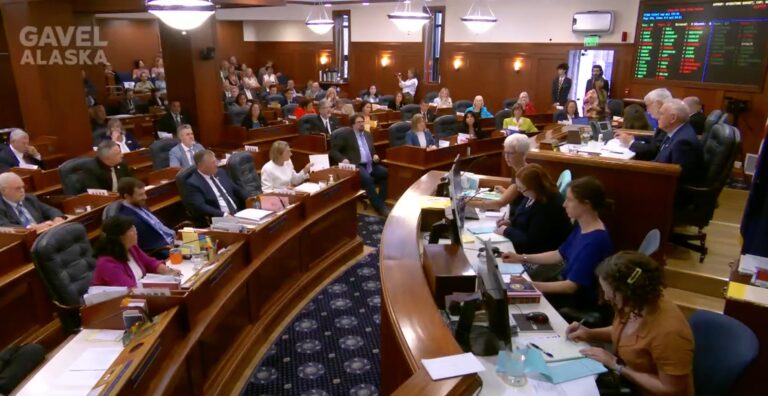By DAVID BLACKMON
Interior Secretary Doug Burgum, whose department oversees the Bureau of Ocean Energy Management and the federal offshore leasing program, dealt the offshore wind industry a major blow this week by rescinding all designated Wind Energy Areas on the US Outer Continental Shelf.
The move is just the latest in a string of steps taken by the White House and the Department of Interior to carry out President Donald Trump’s oft-repeated campaign promise to bring an end to the offshore wind industry in the United States.
Since the advent of the Biden administration’s aggressive push to fast-track permitting approvals for massive industrial sites in the midst of known whale migration routes and prolific commercial fishing grounds, the offshore wind industry has been plagued by scandals and mishaps.
- Commercial fishermen in the Northeast have complained loudly and filed lawsuits over claims the industry’s noisy operations and ship traffic has damaged their businesses.
- The advent of construction of hundreds of towers higher than New York skyscrapers coincided with a huge increase in the numbers of whales and other marine mammal carcasses washing up on northeastern shores.
- The collapse of a giant blade from a Vineyard Wind turbine caused huge amounts of dangerous shrapnel to wash up on local beaches, creating an uproar in Nantucket and other coastal communities.
Though offshore developers and Biden-era regulators at NOAA have denied claims related to fishing and whales, the reputational harm has been done. The damage caused by the blade collapse at Vineyard wind was too transparent even for the Biden White House and regulators to obscure, and the US Bureau of Safety and Environmental Enforcement ordered operations to be shut down pending an investigation and cleanup efforts. That order was lifted in the waning days of Biden’s presidency on Jan. 17 as a final favor to the struggling industry.
There have been no similar favors from Washington, DC since Jan. 20, when Trump was sworn into office. His efforts to end Biden’s favored business started with a Day 1 executive order targeting both offshore and onshore wind, and a steady succession of additional orders and administrative moves has flowed from the executive branch in the past 6 months. Congress also got into the act in early July, with language in the One Big Beautiful Bill Act mandating a gradual rescission of wind industry access to Biden-era tax breaks and other subsidies.
Burgum has aggressively acted to pursue the President’s goals. Indeed, on July 29, the day before he rescinded Big Wind’s offshore designated areas, Burgum published a policy update which ends Biden-era preferences for offshore and onshore wind projects under federal jurisdiction.
The four policy actions contained in Tuesday’s notice include:
- Ending preferential treatment for offshore and onshore wind projects.
- Restoring the multiple use of public lands and waters doctrine observed by every president since it was established more than 120 years ago.
- Providing stakeholders expanded engagement access mandated under the Administrative Procedures Act.
- Ordering a study to review the wind industry’s impacts on migratory birds.
That final item could become especially damaging to the wind industry’s future given the practices at the state and federal levels of approving major wind projects in the midst of known migratory bird corridors. Even “red” states like Texas and some of the Great Plains states have ignored wind power’s known impacts on migratory birds to enable policymakers to virtue signal their green credentials to constituents.
As I wrote earlier this week, the President made his views about wind power clear again with his harangue during a press availability with EU President Ursula Von Der Leyen in Scotland, saying, “It’s the worst form of energy, the most expensive form of energy. But windmills should not be allowed…it’s not going to happen in the United States.”
That was on Monday, when the President would have no doubt been aware of the actions Burgum was about to take over the rest of the week. Now, with Burgum’s new measures going into effect at DOI, the future of the U.S. offshore wind industry is clear, and the outlook for onshore wind is only marginally less disastrous.
Elections do matter, and politicians in blue states and red states alike will have to find other ways to signal their glorious green virtues.
David Blackmon is an energy writer and consultant based in Texas. He spent 40 years in the oil and gas business, where he specialized in public policy and communications.








